Category Archives: Survey translation and localisation

Why Documentation of the Survey Translation Process is Crucial and How to Do It
by Elica Krajceva – Senior Project Manager, Cross-cultural Survey Specialist Is it necessary and worth your time to keep a record of all important steps in a survey translation process? The answer is – yes, it is absolutely essential! Read on to find out the benefits of documentation. Survey documentation is an important part of …
“Why Documentation of the Survey Translation Process is Crucial and How to Do It”
Read More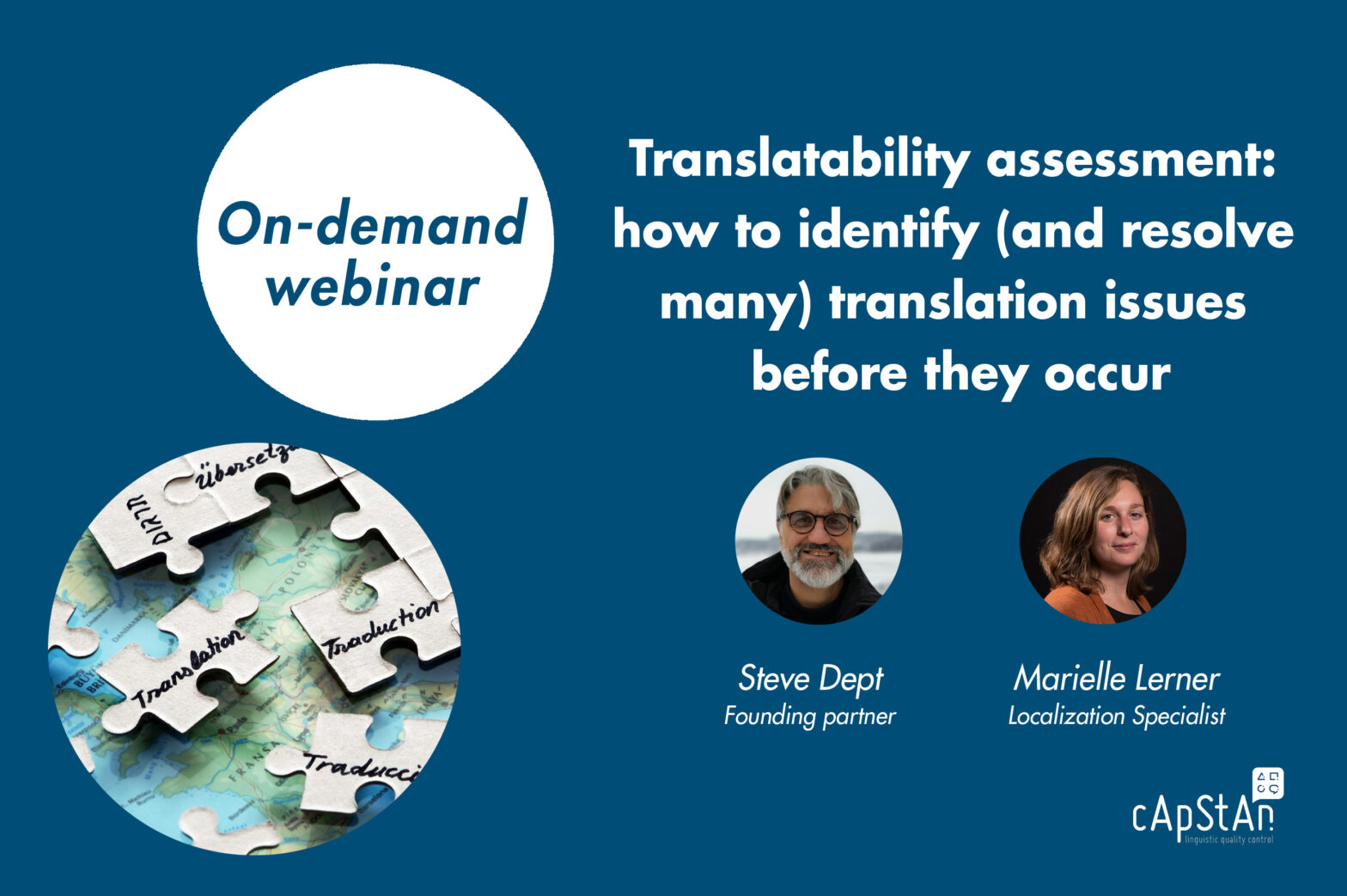
On-Demand Webinar |Translatability Assessment
A translatability assessment (TA) is a tried and tested method to optimize the master version of your assessment or survey questionnaire before the actual translation and adaptation process begins. In many multilingual tests or surveys—not only PISA or PIAAC or Pew Research Center’s Global Attitudes Project—the TA has become an important design step. The TA process increases …
“On-Demand Webinar |Translatability Assessment”
Read More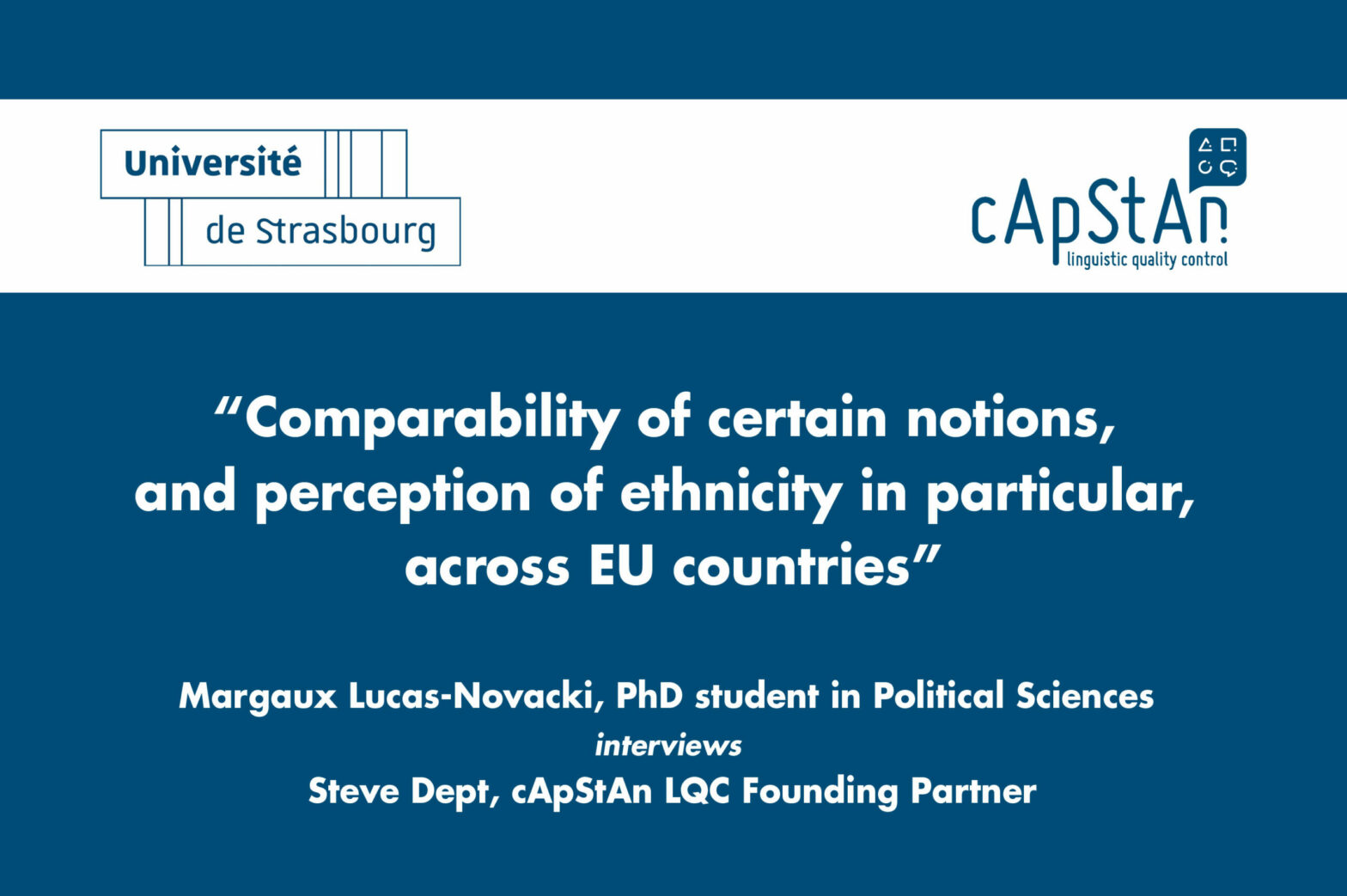
Comparability of certain notions, and perception of ethnicity in particular, across EU countries
Recently, Steve Dept, cApStAn’s founding partner and director of strategic partnerships was interviewed by Margaux LUCAS-NOWACKI, PhD student in political sciences, University of Strasbourg. The session was very informative and we thought of sharing the questions and answers with everyone in the survey localisation space. Could you describe the whole process of translating a survey …
“Comparability of certain notions, and perception of ethnicity in particular, across EU countries”
Read More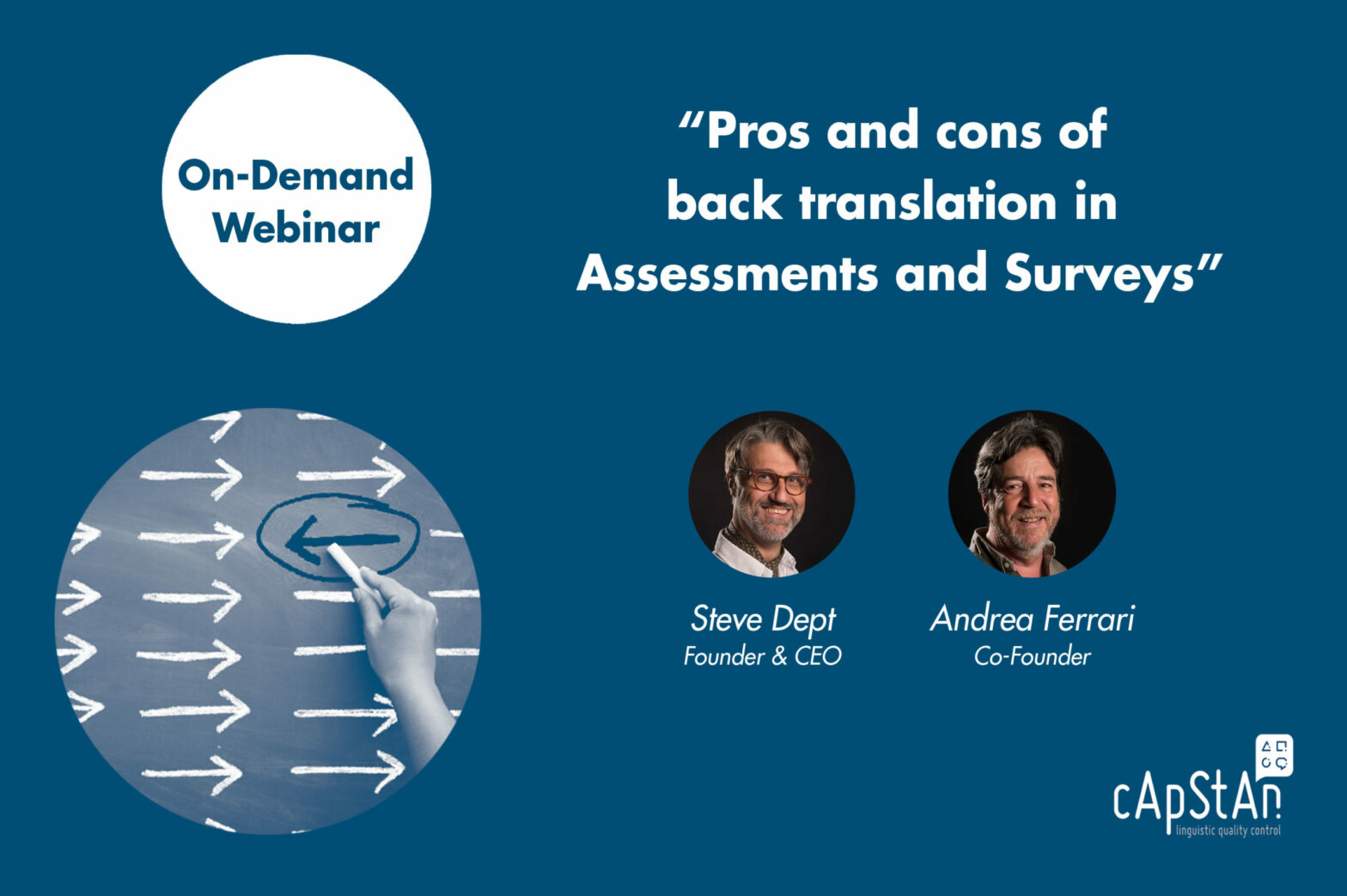
On-Demand Webinar| Pros and cons of back translation in assessments and surveys
Pros and cons of back translation in assessments and surveys A webinar by Andrea FERRARI and Steve DEPT, the founders of cApStAn Linguistic Quality Control. In 45 minutes, they will tell you everything you always wanted to know about back translation but never dared to ask such as: Telling examples from international studies – for which Andrea and Steve were commissioned …
“On-Demand Webinar| Pros and cons of back translation in assessments and surveys”
Read More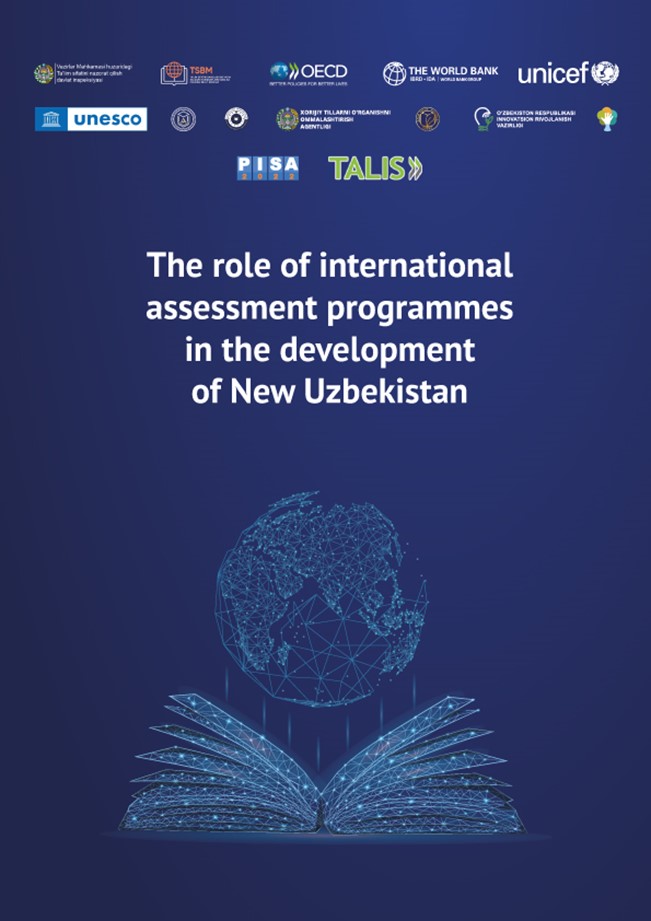
PISA launch event in Uzbekistan | Translation of PISA Assessments – the Gold Standard within reach of National Centers
The State Inspectorate for Supervision of Quality in Education (SISQE), Uzbekistan in collaboration with the Ministry of Public Education, National Center for International Studies on the Assessments of Quality in Education, OECD, UNICEF, World Bank, UNESCO are organizing a in-person/virtual hybrid conference on 11-12 April, 2022 to launch and commemorate Uzbekistan’s participation in PISA 2022 …
Read More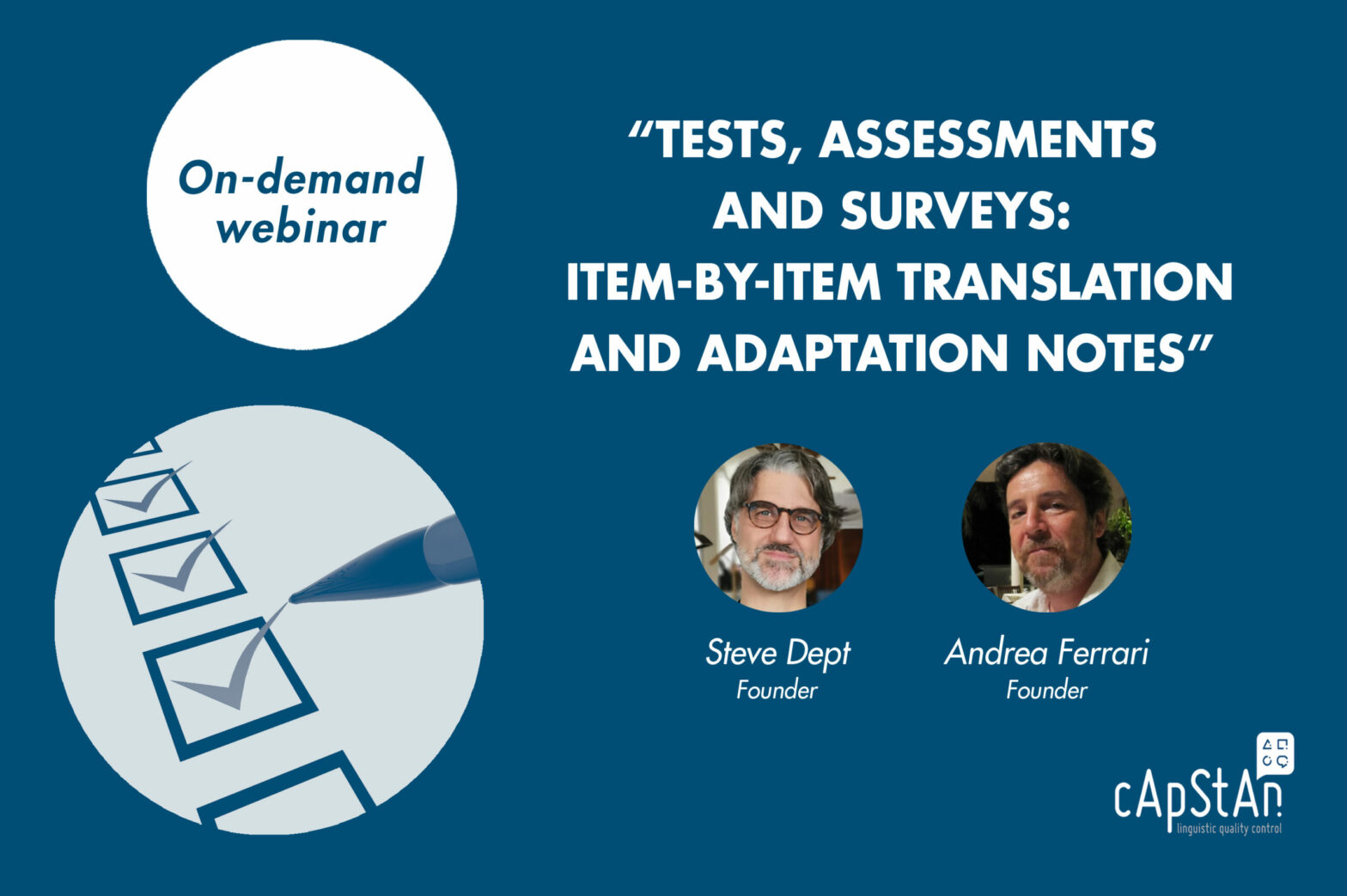
On-Demand Webinar – Tests, Assessments and Surveys: Item-by-item translation and adaptation notes
You need to deploy a test or questionnaire in multiple countries and languages? The reliable validation of translated data collection instruments requires—among other things—a robust QA design. A design that focuses on equivalence, comparability as well as appropriateness in each target culture. Based on +20 years of experience as LQA practitioners, Steve and Andrea profess …
“On-Demand Webinar – Tests, Assessments and Surveys: Item-by-item translation and adaptation notes”
Read More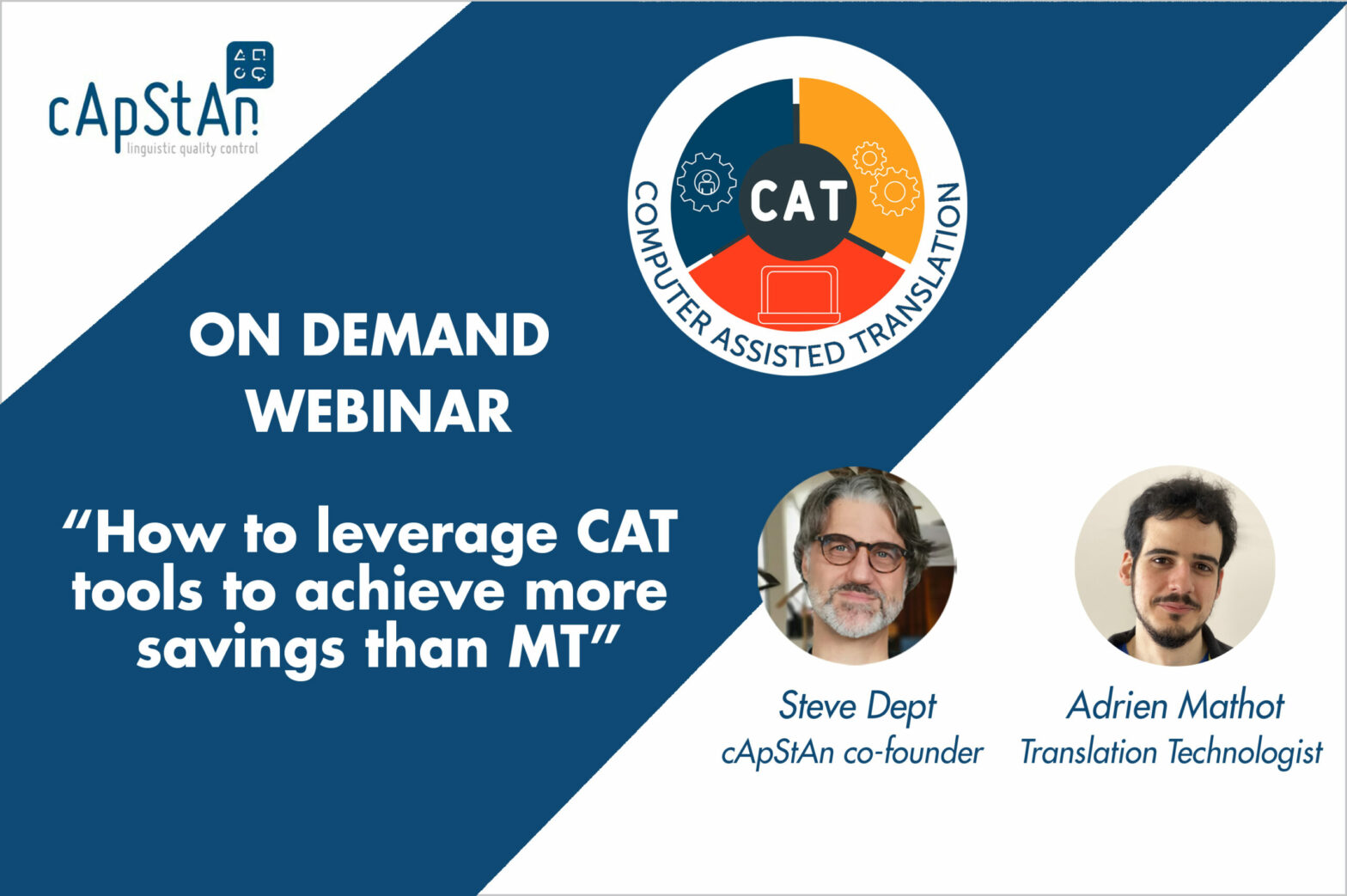
On-Demand Webinar | How to leverage CAT tools to achieve more savings than MT
Computer-assisted translation tools (CAT tools) have been around for 30 years, and they are designed as productivity tools for professional translators. Using CAT tools effectively increases quality, consistency and productivity at scale. Term bases, style guides and translation memories form a powerful combination that (still) give the human translator a competitive edge in terms of quality/price …
“On-Demand Webinar | How to leverage CAT tools to achieve more savings than MT”
Read More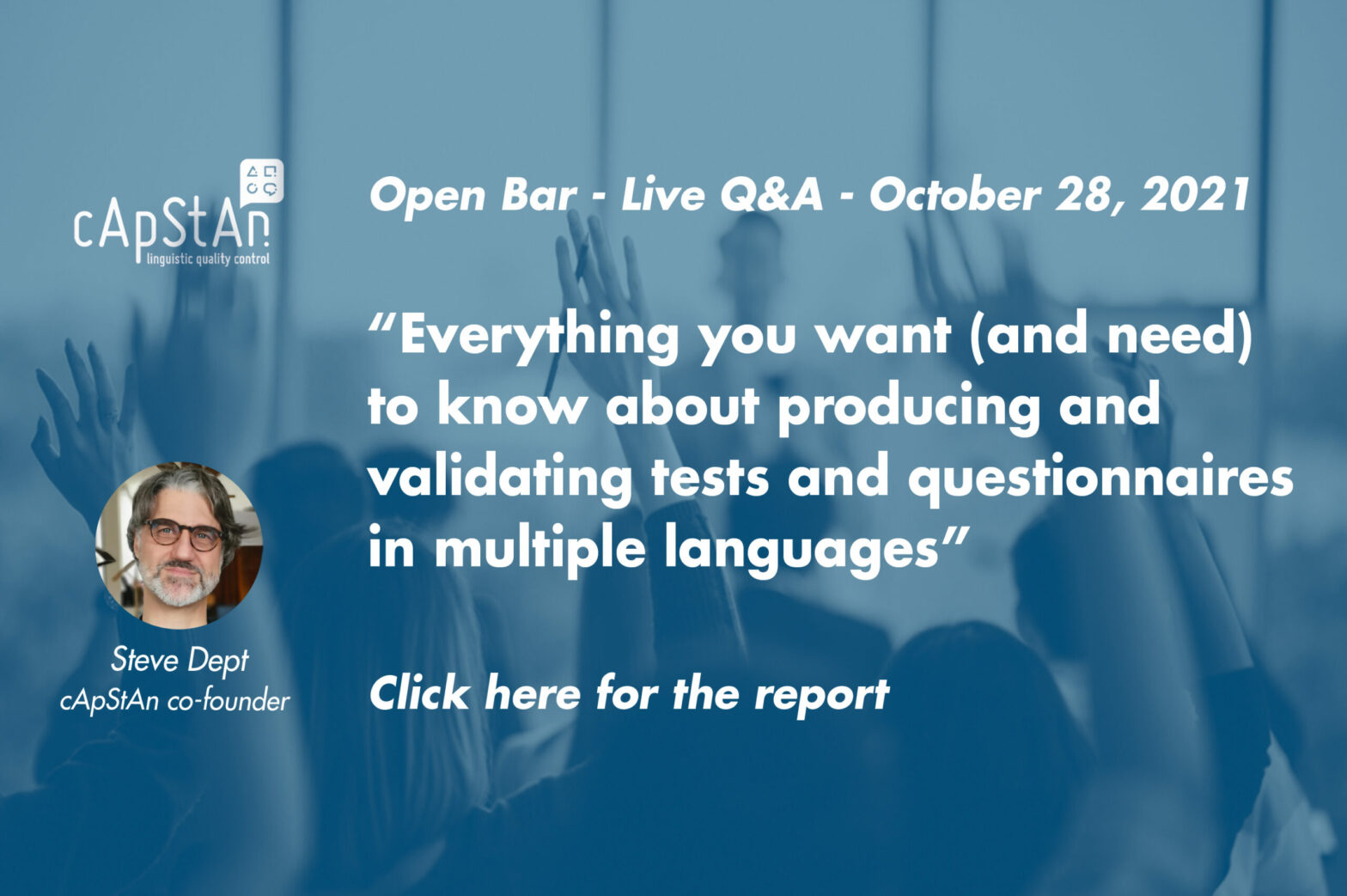
Everything you want (and need) to know about producing and validating tests and questionnaires in multiple languages
by Pisana Ferrari – cApStAn Ambassador to the Global Village Open Bar – Live Q&A – Thursday, October 28, 2021 Our first in the series of cApStAn Open Bar – Live Q&A webinars took place on October 28. Our new format: a very short PowerPoint – with five slides sent to participants in advance– and …
Read More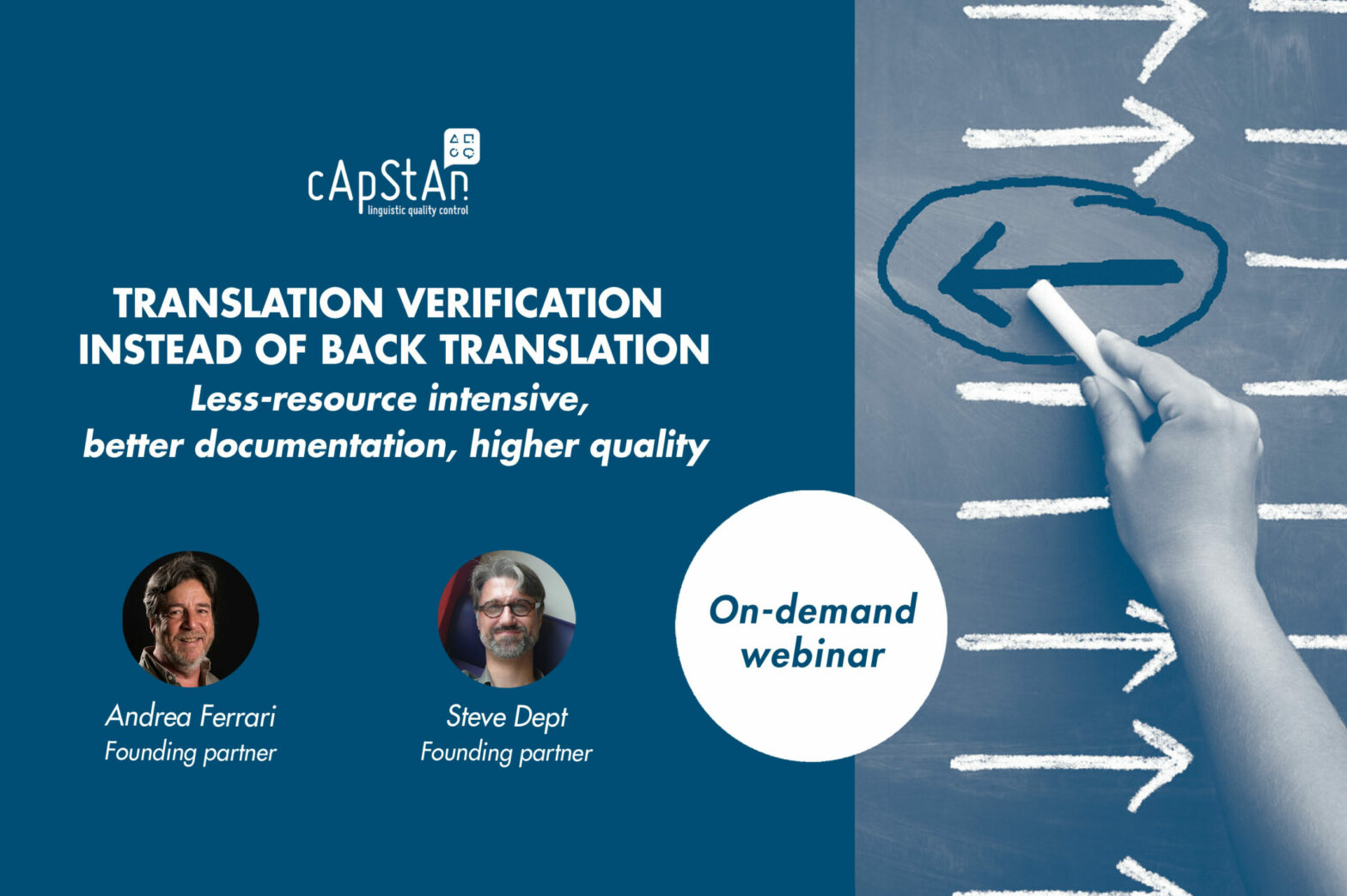
Translation Verification instead of Back Translation
Less-resource intensive | better documentation | higher quality Speakers: cApStAn’s founding partners Steve Dept and Andrea Ferrari Recorded Live on Sept. 22, 2021 | Duration: 1 hr. In this webinar, the speakers will tell you why experts judge that the back translation design is inadequate, but also why the gold standard does not need to be costlier. – To …
“Translation Verification instead of Back Translation”
Read More
Survey data about non-binary people: a critical tool to inform discussions about policy, resource allocations, and other issues that affect them
by Pisana Ferrari – cApStAn Ambassador to the Global Village “International Non-Binary People’s Day” is celebrated ever year on the 14th of July since 2012 and is aimed at raising awareness around the issues faced by people who do not identify as male or female. The issue is gaining increasing traction in the current debate …
Read More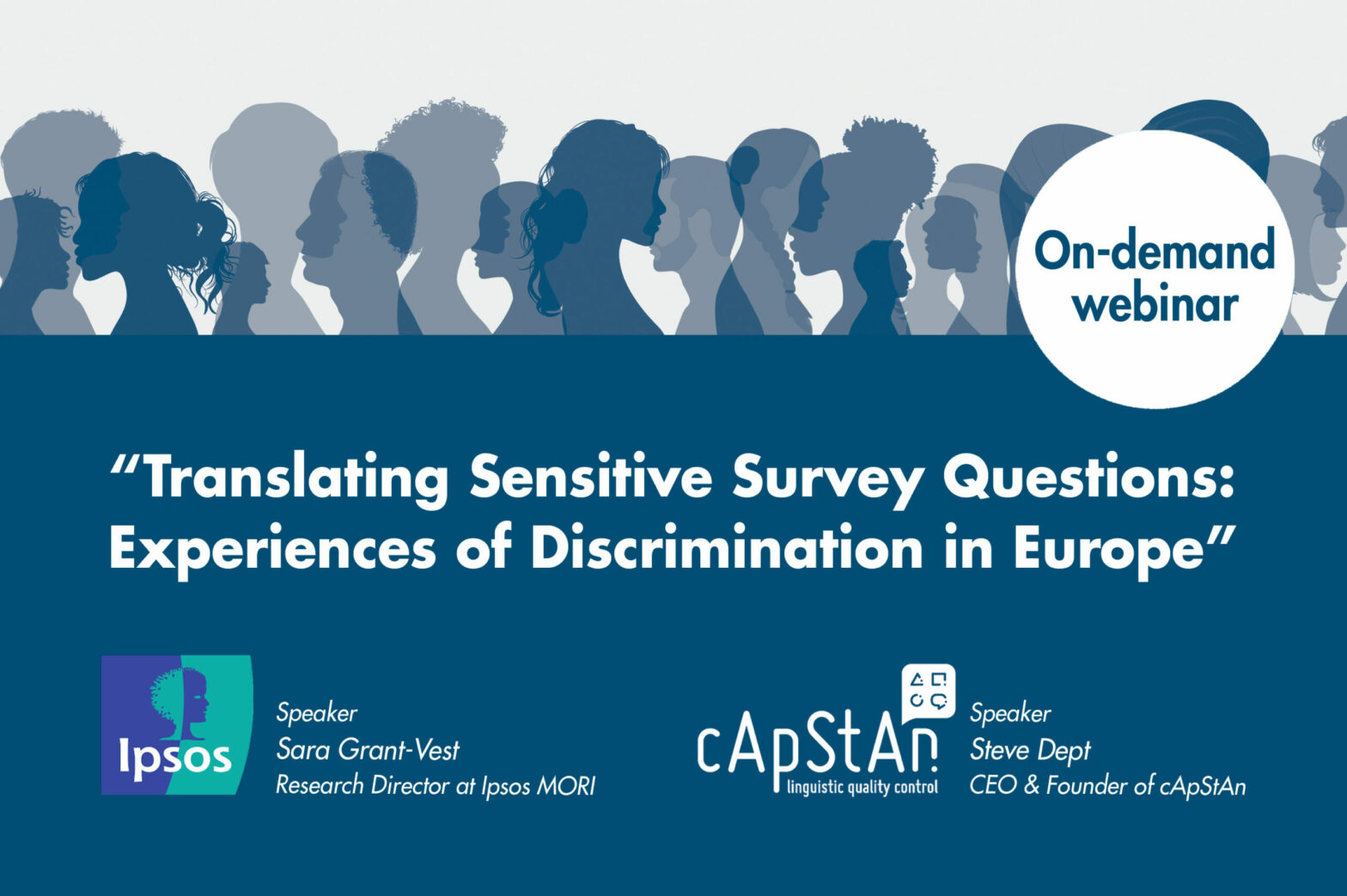
DETAILED TRANSCRIPT: TRANSLATING SENSITIVE SURVEY QUESTIONS – EXPERIENCES OF DISCRIMINATION IN EUROPE
Download your free copy below EU-MIDIS II, the EU’s 2nd Minorities and Discrimination Survey, provides an interesting case study of a close and successful collaboration between the FRA, the EU Agency for Fundamental Rights, the survey organisation Ipsos MORI, and cApStAn LQC. The aim of the EU-MIDIS cycle of surveys is to assist EU …
Read More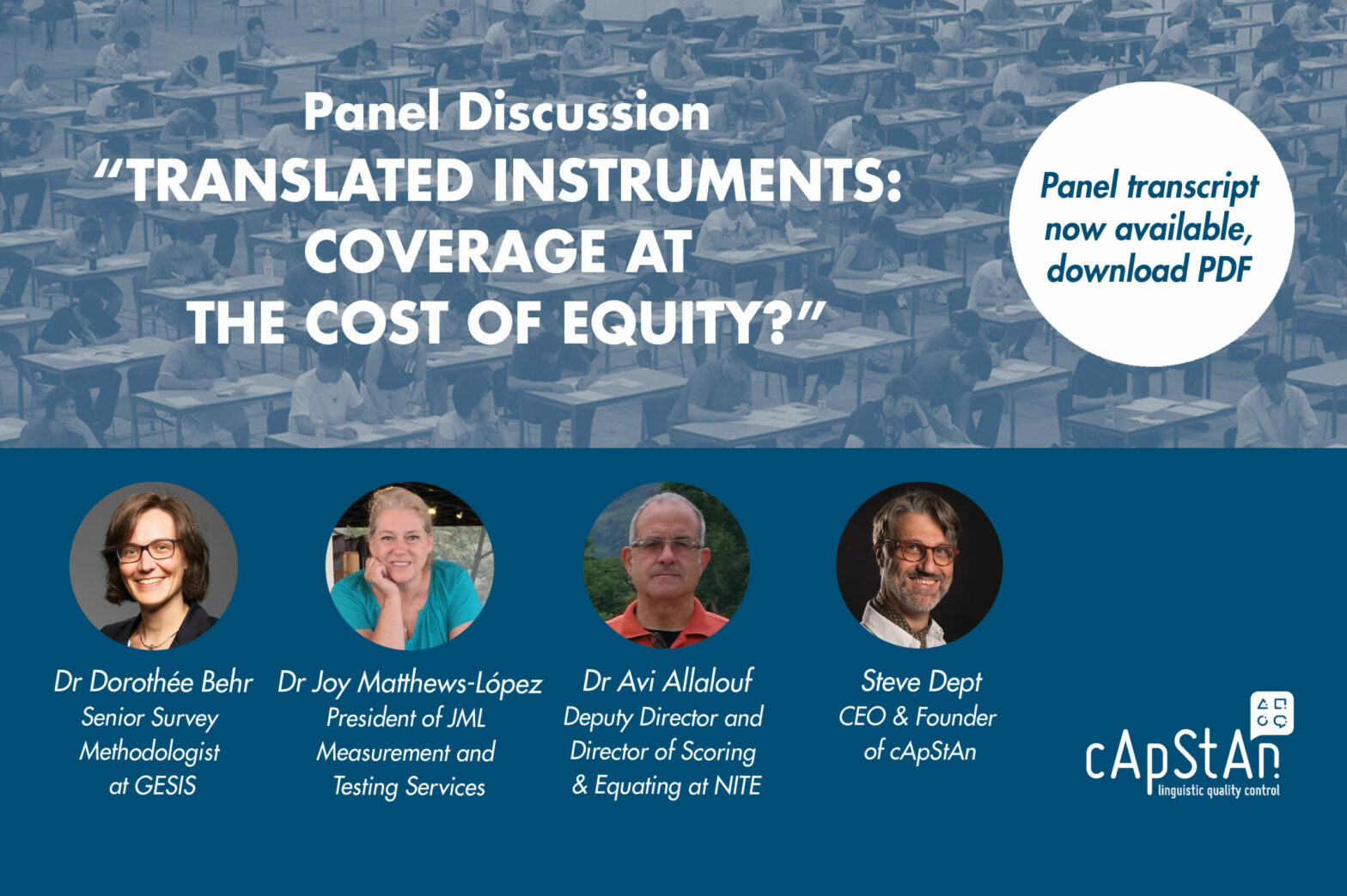
Detailed Transcript: Translated Instruments: Coverage at the cost of Equity?
Standardized tests and questionnaires are used in a variety of contexts: admission to university, certification, hiring, or collecting information about background variables, for example. Tests and surveys may come in more than one language. While this broadens the coverage, it may create disparities if the different language versions are not equivalent. cApStAn’s May 5 online …
“Detailed Transcript: Translated Instruments: Coverage at the cost of Equity?”
Read More